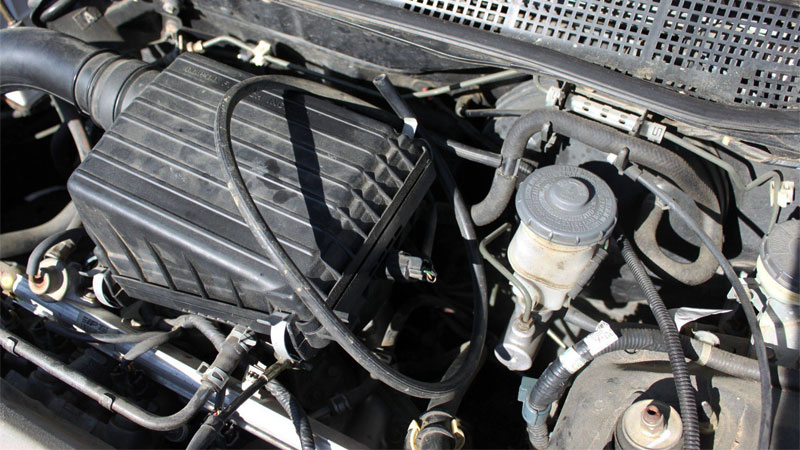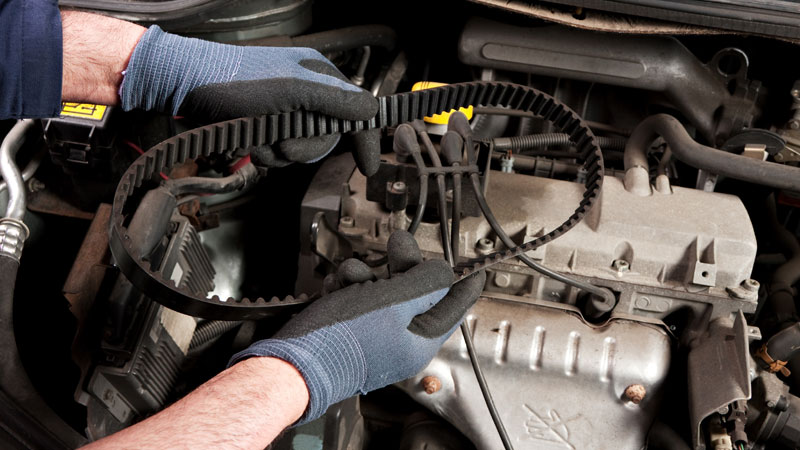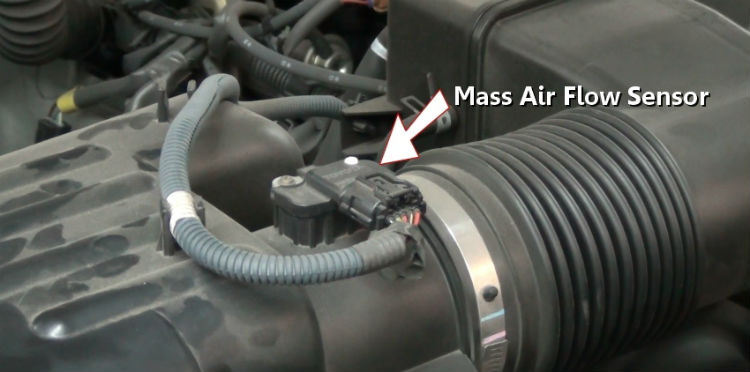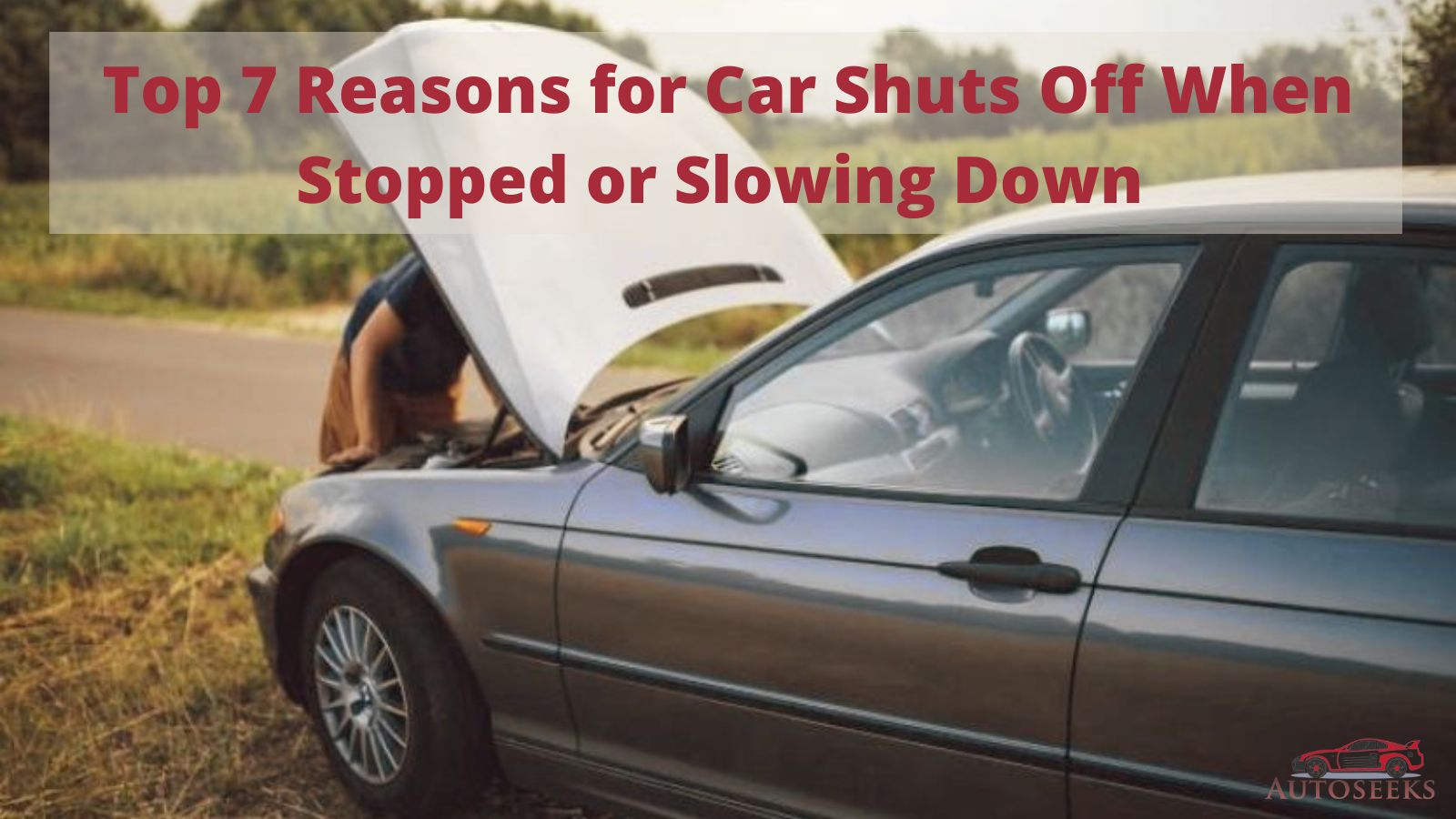It’s risky to have your car shut off when stopped or slowing down you’re driving. Find out the most common causes of automobile shut-offs, and how to correct them with good car maintenance.
And what to do to keep you and other drivers on the road safe when this happens while you’re in traffic. The most frequent causes of car shut-off are a malfunctioning throttle body or lean fuel mixture.
When you own a car, you are accountable for keeping it maintained. To guarantee that your car lasts for a long time, frequently check the oil, petrol, and coolant.
A technical issue, such as a broken down vehicle or car jerking when braking can be avoided with some basic knowledge about your car. Your automobile may die unexpectedly when you slow down or stop, even if the warning light may not always be on.
In this article, we are going to see the top reason why car shuts off when stopped or slowing down and fix to fix them easily
Table of Contents
7 Common Causes Of Car Shuts Off When Stopped or Slowing Down
A faulty throttle body or a lean fuel mixture are the most common reasons for this. If your engine stops working unexpectedly at a low speed, you should have a professional take a look. Here I’ll show you the top causes of car shutting off when stopped or slowing down :
1. EGR Valve Blocked or Restricted
Whether it is stuck open or closed, a clogged EGR valve will cause your automobile to stall, sputter, or idle improperly. If the valve is dirty or broken, your car may stall, idle irregularly, or spit as a result.
When an actuator malfunctions, the engine receives a no-idling speed signal and shuts down.
How to repair
Cleaning is necessary for an obstructed EGR rather than replacement. The EGR can become clogged by carbon deposits, so be sure to check them completely. Purchase EGR valve cleaners, then spritz them on the carbon accumulation.

2. Damaged Oxygen Sensors
The mass flow sensor and oxygen sensors help the vehicle’s air-to-fuel ratio by measuring how much oxygen is entering the fuel stream. Your car shuts off when stopped or slowing down if there is too much or too little oxygen present.
Similar to low fuel pressure, the car will still run at driving speeds, but when it slows down, this insufficient power won’t be able to feed it.
How to repair
Typically, the oxygen sensor codes chart is required to identify the issue. If this is the root of the issue, be sure to replace the oxygen sensor or oxygen. The best person to solve this issue is a mechanic.
3. Wiring Problem
For an automobile to start and run, the fuel-air mixture needs to be ignited by an ignition system. If your ignition system fires inconsistently, your engine could stall. This could provide some insight into why your automobile shuts off when you stop or slow down.
How to repair
Fixing or replacing any loose, broken, or corroded wires will solve the problem. Additionally included in this group of wires is the ignition wire, which is in charge of delivering power to the spark plug.
The engine will lose voltage if you don’t replace any damaged wires or secure any loose ones. Furthermore, when you slow down or try to stop the automobile, the engine will shut off due to a lack of power needed to create the spark that will ignite the fuel.

4. Defective Spark Plugs
Another crucial component of your engine’s power generation system is the small spark plugs. In the engine’s combustion chamber, these parts ignite the mixture of fuel and air to create combustions. In the engine, there are spark plugs in each cylinder.
You can start and drive your automobile with just one faulty spark plug. If more than one spark plug fails, your car shuts off when stopped or slowing down and it probably won’t run for very long. Several faulty spark plugs cause the vehicle to stall and shut down while it is moving.
How to repair
Purchase high-quality spark plugs for your vehicle as a remedy. Spark plugs of superior quality do not deteriorate too soon.
Spark plugs are available in silver, copper, single platinum, double platinum, and iridium. Despite being inexpensive, copper spark plugs do not last long enough. For lifespan and dependability, make sure to choose spark plugs made with other materials.
5. Low Fuel Pressure or A Damaged Fuel Pump
Low fuel pressure, filthy or damaged fuel injectors, or a broken fuel pump are all examples of fuel-related problems. Low fuel pressure, which indicates an erratic delivery of fuel to the engine, might be caused by a broken fuel pump.
This doesn’t matter as much at high speeds, but an unexpected interruption in the fuel delivery can cause the engine to stall out at low speeds.
The spark plugs ignite the fuel at the appropriate time by sparking it, which is done by the fuel injectors in a controlled amount. Over time, injectors can accumulate dirt or clogs, which can cause inconsistent or no spray at all.
How to repair
Clear the clogged fuel injectors by giving them a concentrated cleaning. For cleaning, concentrated cleaners are typically diluted with water.
6. Faulty Idle Air Control Valve
When an engine is idling, the idle air control valve regulates the RPMs. This actuator gets data from the electronic control unit (ECU), which enables it to determine the RPM at which to maintain the engine for a secure and smooth idle.
When the valve malfunctions, the engine gets no signal for idling speed and stops working. This could cause the car to shut down as you try to stop it or slow down.
How to repair
An idle air control valve has to be replaced because it is malfunctioning and occasionally unclean. If your automobile still turns off when you slow down or stop, get in touch with a specialist to address this complicated issue.

7. Faulty Transmission
The torque converter, which replaces the manual clutch in a vehicle with an automatic transmission, is in charge of transferring power. Because the automobile won’t be able to keep power at low speeds if the torque converter is faulty or the transmission fluid level is low, the engine will shut off.
This problem can also be brought on by a bad TCS or torque converter solenoid.
How to repair
The damaged torque converter needs to be replaced right away. Friction, overheating, and a quicker degrading of the transmission fluid are all effects of a damaged torque converter. To fix the issue, be sure to also replace the tainted transmission fluid.
FAQ Regarding Car Shuts Off When Stopped or Slowing Down
Q. 1) Why does my car shut off when stopped or slowing down?
Ans. 1) If your car stalls after stopping, the engine is very sensitive when idling. This can have many causes but is usually caused by a lean fuel mixture causing the idle to drop too low. A faulty throttle valve can also cause this.
Q. 2) Can low oil cause a car to shut off?
Ans. 2) Many modern vehicles are equipped with various safety mechanisms to protect the engine in adverse conditions. One of them is an automatic shutdown when the oil pressure drops to a certain level or the oil level is too low.
This causes the engine to stop and stall. However, stopping the engine itself is very harmful to the engine, as it can lead to damage to the pistons, head, and other components.
Q. 3) Why did my car just shut off while driving and won’t start?
Ans. 3) It could be a problem with the alternator or the battery itself. Check electrical systems, connections, and terminals. If not, check the drive belt for damage or re-tension.
If the car stalls while driving but starts again, check for a clogged fuel filter. It could also be due to a weak fuel pump that is unable to provide the standard pressure.
Q. 4) How to fix car shuts off when stopped or slowing down?
Ans. 4) To solve the problem you must first find the cause as it can range from a faulty fuel pump to a clogged ERG valve. It would be better if you immediately try to get to the bottom of the cause in order to fix it and avoid damage to your beloved car.
Conclusion
Make contact with an expert mechanic. Your car shutting off when stopped or slowing down can be traced back to its source and cause with the aid of mobile mechanics.
When the engine is idle, they listen for misses, backfires, or other odd noises. You will receive a thorough inspection report that details the extent and price of the repairs.
- Understanding the Leading Causes of Car Accidents in 2025 - November 18, 2025
- How to Spot a Great Deal on a Car for Sale in NSW - October 31, 2025
- How to Choose the Right Used Car Dealership in NSW - October 31, 2025


